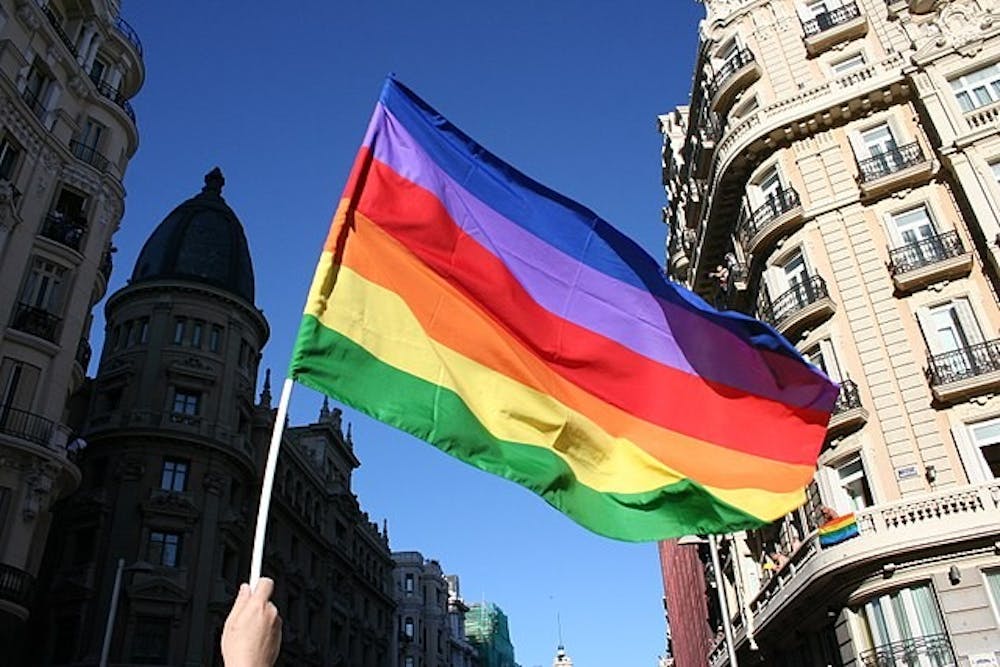LGBTQ+ youth are once again under attack. The culture war has evolved from restricting their ability to use restrooms in line with their gender identity to now erasing any trace of the LGBTQ+ experience from schools. Bathroom policies — advocated for by hate groups like the Alliance Defending Freedom — that restrict queer kids from using their preferred restroom are an unjust attack that does nothing other than to intimidate them from expressing themselves and alienate them from their peers. On top of this, parents obsessed with removing any mature content from schools have put their sights on queer literature, continuing the erasure of any LGBTQ+ narrative. These policies are harmful and infantilizing to young adults — Virginia should take action to protect the free speech and right to privacy of LGBTQ+ students.
The Hanover School Board is the latest locality to enact a policy restricting students’ access to restrooms. This mirrors current activity at the state level, where Governor Glenn Youngkin has recently done away with LGBTQ+ students’ protections — which sought to protect trans students from harassment and protect their right to privacy — put in place under the past administration. Acts such as these that remove protections create deep institutional harm that will have lasting effects on LGBTQ+ kids during their most formative years. Bathroom bans create an environment that makes LGBTQ+ youth feel like they are not wanted or welcome.
It’s also important to remember that this legislation does not exist in a vacuum. Virginia is at risk of the same economic consequences that North Carolina and other states have faced for bathroom bans. There were serious fiscal ramifications for House Bill 2 in North Carolina. Due to the statewide ban, Paypal pulled out its deal in Charlotte, Deutsche Bank put a deal on hold in Cary, CoStar relocated to Richmond — something they may consider doing again — and the NBA and NCAA both moved tournament locations from the state. All of this would have culminated in putting $5 billion at risk all for the desire to target the incredibly small minority of trans youth in the state. While former governor Pat McRory believed this would benefit the state and proponents of the bill called it “common sense," the transphobic motivation behind the bill brought about nothing but negative consequences. This is both objectively bad for trans kids and bad for the Commonwealth. Removing protections for LGBTQ+ youth will open the door for harmful legislation against them and stifle the state’s ability to thrive economically.
As if the estrangement of not being able to use the right bathroom isn’t enough, books that feature LGBTQ+ characters have also been roped into the battle over America’s schools. Parents have become increasingly concerned about the content their children are taught, no thanks to Youngkin’s outrageous critical race theory conspiracy. This has now spread to book banning, an archaic concept that one would think we had left in the past. Targets of earlier this year were graphic novels such as “Maus,” though now graphic novels such as “Gender Queer” are under attack as well. Even more concerning is the general attack on books containing any mature content, despite many of them being staples of high school English classes, such as classics by Toni Morrison or relatively tame novels like those by John Green. While these battles have been occurring since these books were released, the fight behind them is constant and becoming a worrying struggle over free speech.
The claim goes that because such novels feature anything graphic, such as nudity appearing in one or two scenes in the case of “Maus” and “Gender Queer,” they are therefore inappropriate for a middle to high school audience. This ignores several factors about society. First, these are kids who are going through puberty and are on their way to being adults. If we infantilize children who are having hormonal changes and act like they can’t have thoughts or access to information about those changes, then we are failing them and not encouraging critical thinking in the slightest. Moreover, ignoring the reality of the world — that children are in the process of becoming adults and should be treated with respect as such — is a foolhardy venture. If the children are to inherit and lead the future, then it is in the spirit of free speech that they see a robust number of perspectives and ideas on what life is really like. If you truly believe that a child has never heard or thought about anything explicit, then you are living on another planet.
While it may seem bleak, there are some positives in the fight against book banning. Recently a judge ruled that “Gender Queer” could not be banned from book stores in Virginia, as doing so would violate the First Amendment. There are also efforts from national organizations — such as the American Civil Liberties Union — trying their best to support citizens in pushing back against book bans. This support is invaluable, but more must be done. To show its commitment to free speech and equal rights, the Virginia General Assembly should ensure books are not banned in school libraries and protect trans kids from attacks based on specious reasoning with underlying hateful intent. To counter the move on Youngkin’s part to harm LGBTQ+ kids is the only sane option. Silence and inaction cannot be tolerated neither from a moral perspective nor from an economic one. The only option is to preserve the privacy and speech of LGBTQ+ youth or face the consequences of failing to do so.
Ryan Lanford is an Opinion Columnist who writes about politics for The Cavalier Daily. They can be reached at opinion@cavalierdaily.com.
The opinions expressed in this column are not necessarily those of The Cavalier Daily. Columns represent the views of the authors alone.







